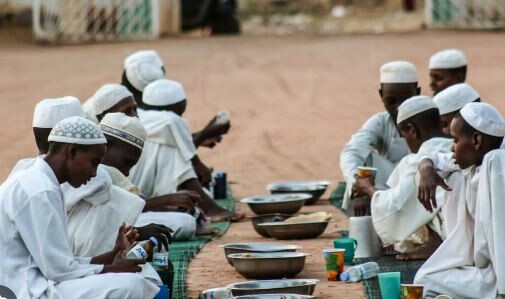Despite the effects of war, the people of Sudan’s West Darfur State capital, Geneina, have maintained their religious rites during the holy month of Ramadan and the streets fill up with people in the evening at the time of breaking the fast, locally known as Al-Dara’a.
The scent of Hilo-Mur, a local drink associated with Ramadan, permeated the air a few days before the start of the holy month and markets bustled with buyers preparing for Ramadan. Unfortunately, some neighborhoods are eerily quiet and devoid of their inhabitants who fled the war and are now domiciled in Internally Displaced Persons (IDP) camps or refugee camps in neighboring countries.
Many residents lost their money and belongings, while others departed from this world to the hereafter.
Radio Tamazuj met with several citizens and asked them about Ramadan amid the war. Engineer Mohammed Musa El-Gali stated that Ramadan is a sacred month associated with various Islamic values distinct from other months, and it holds special significance for Muslims.
He added that Ramadan this year is different from previous years because the war has affected communities, leading to displacement, flight, and the destruction of both private and public property, as well as ushering in hard economic and dire living conditions.
“We welcomed Ramadhan this year, but the situation, circumstances, and resources are not as they were before,” he lamented. “I hope for security to prevail, and this cursed nonsense of a war to end so that Sudan can enjoy peace and stability.”
Another Geneina resident who is a civil activist, Abu-Bakr Abbas, echoed that Ramadan this year is different because it comes amid the ongoing war which he hopes will end soon so that Sudanese return to their homes and life returns to normal.
“Even the scent of Hilo-Mur which used to be present in every household and every neighborhood has disappeared. Currently, conditions have changed and people cannot afford to meet and share a crust of bread due to the war,” he mourned. “We hope from Allah that just as the war started in Ramadan, it will stop in Ramadan, and peace, security, and stability will prevail in Sudan.”




